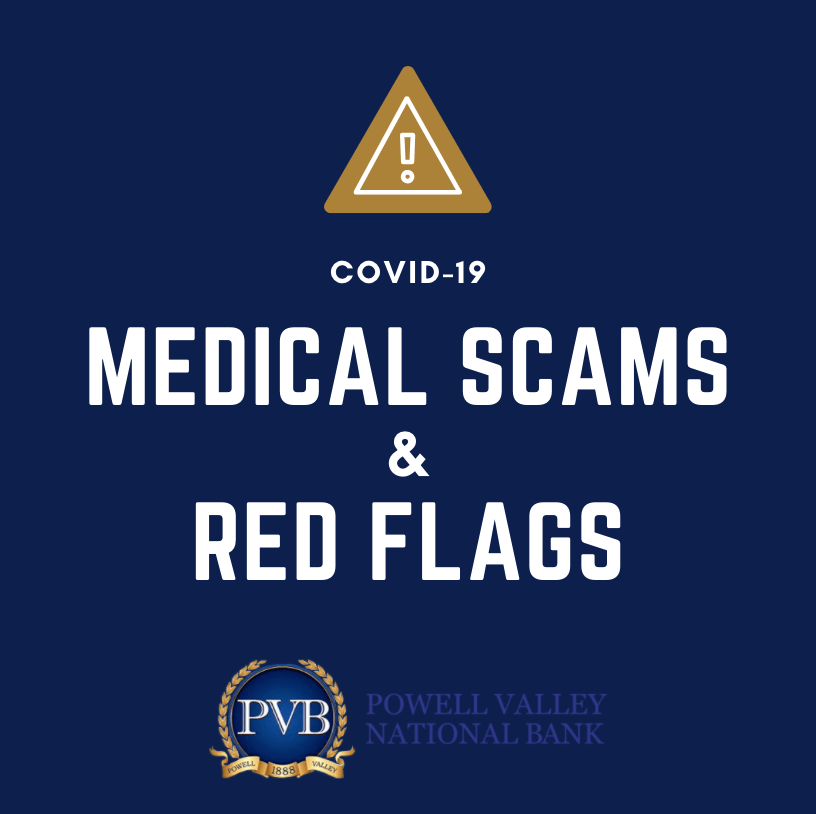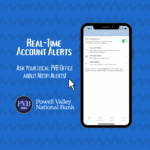The Financial Crimes Enforcement Network (FinCEN) has released an advisory regarding a recent rise in medical scams related to COVID-19. The fraudulent activity centers around fake medical products and services, non-delivery scams, and price gouging of medical items.
Fraudulent Medical Products
Examples of fraudulent medical products and services related to COVID-19 may include false claims regarding fake vaccines or cures, false claims about products that purportedly disinfect homes or buildings, and the distribution of fake or unauthorized at-home COVID-19 tests.
Non-Delivery Fraud
Due to the Coronavirus pandemic, demand has increased steeply for certain medical-related products. At the same time, the Coronavirus pandemic has also disrupted global shipping patterns. These circumstances create opportunities for criminals to defraud consumers through non-delivery of merchandise. In a non-delivery scam, a customer purchases a product from a fraudulent company that is intentionally never delivered. These fake companies advertise test kits, medicine, and PPE that they never intend to deliver or may not even possess in the first place. The fraudulent transactions can occur through websites or robocalls and may target consumers, companies, hospitals, or governments.
Price Gouging of Medical Items
The Department of Justice and FinCEN have reported on numerous instances of hoarding and price gouging of medical products related to COVID-19. According to the DOJ, hoarding and price gouging are defined as the act by any person or company of accumulating an unreasonable amount of these goods for their personal use or for the purpose of selling them far above prevailing market prices. Although prohibited under a recent Executive Order, products most often being price gouged include face masks, disinfectants, disposable gloves, isopropyl alcohol, hand sanitizer, toilet paper, and other paper products with inflated prices due to COVID-19. Payment methods vary depending on the scheme but may include the use of pre-paid cards, money services businesses, credit card payments, wire transfers, or EFT.
Read More: Cybercriminals Taking Advantage of Coronavirus
Red Flags
Before purchasing medical items related to COVID-19, slow down and take time to properly evaluate the supplier. Here are some red flags to look out for:
- U.S. authorities identified the company, merchant, or business owners as selling fraudulent products.
- The merchant is advertising at-home vaccines, treatments, cures, or test kits. Be aware that at the time of this publication, the FDA has only approved 3 at-home tests.
- When visiting a website selling medical products related to COVID-19, look for the following red flags:
- The company’s name or website URL is similar to a real, well-known company’s website. Some fraudsters do this in attempt to trick people.
- The company’s web presence is unusually small or new.
- The company is located outside of the U.S.
- Pharmaceuticals that usually require a prescription are listed for sale with no prescription necessary.
- Product branding pictures found on a certain website appear slightly different than the legitimate product’s images. This may indicate counterfeit items.
- High-demand products are being advertised for sale at either extremely low or extremely high prices.
- Payment is requested via prepaid cards, a money service business, convertible virtual currency, or another unusual form of payment.
- If purchasing medical supplies in bulk, do extra due diligence on suppliers your aren’t familiar with before moving forward, and look out for these red flags:
- Company was recently formed, lacks a physical presence, or lacks an EIN.
- Discrepancies between public records and the info the company presents, or multiple “doing business as” names listed.
- Merchant is reluctant to provide invoices, tracking numbers, or other supporting documentation.
- Merchant claims last minute or suspicious delays in shipment or receipt of goods.
- If you’re having trouble understanding the nature of the merchant’s business or the source of the products, this is a red flag.
No single red flag is 100% indicative of fraud, and many red flags are easy to miss, so it’s important to take your time, do your research, and avoid making hasty purchases.
If you believe your financial information may have been compromised, contact your bank immediately. Click here for PVB Debit Card Support Numbers.
Read More: A Message From The FTC Regarding Coronavirus Scams





